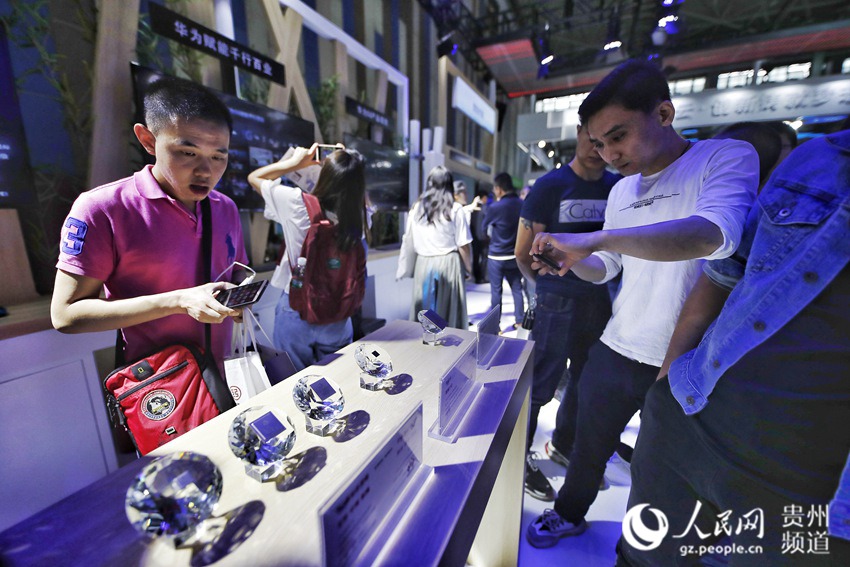

Private enterprises have boosted their investment in scientific research and strengthened technological cooperation in recent years, resulting in greater innovative strength.

Visitors watch 5G chips developed by Huawei at an expo in Guiyang, southwest China’s Guizhou province. (Photo/Luo Jia)
In 2018, Chinese companies spent 1.5 trillion yuan on research and experimental development, accounting for 77.4 percent of the nation’s total in this field, an increase of 11.5 percent, according to a statistical bulletin.
Private companies have become an important driver of R&D expenditure growth in China and optimized the investment structure of scientific research.
The proportion of R&D personnel in the top 500 private enterprises has continued to rise, according to a report released by the All-China Federation of Industry and Commerce in 2019.
328 of the enterprises had over 3 percent R&D personnel and 184 of them had more than 10 percent, said the report.
In addition, private enterprises have shown great innovative strength in areas such as computer communications, automobile manufacturing and Internet.
The continuous efforts made by private companies in research and development have achieved striking results. Private businesses such as Huawei, OPPO, Tencent, and Lenovo ranked in the top 10 of Chinese companies in 2019 in terms of the number of invention patents granted.
Right now, private companies are trying to make breakthroughs in fundamental research through various channels, such as working together with universities and scientific research institutions.
 Fire brigade in Shanghai holds group wedding
Fire brigade in Shanghai holds group wedding Tourists enjoy ice sculptures in Datan Town, north China
Tourists enjoy ice sculptures in Datan Town, north China Sunset scenery of Dayan Pagoda in Xi'an
Sunset scenery of Dayan Pagoda in Xi'an Tourists have fun at scenic spot in Nanlong Town, NW China
Tourists have fun at scenic spot in Nanlong Town, NW China Harbin attracts tourists by making best use of ice in winter
Harbin attracts tourists by making best use of ice in winter In pics: FIS Alpine Ski Women's World Cup Slalom
In pics: FIS Alpine Ski Women's World Cup Slalom Black-necked cranes rest at reservoir in Lhunzhub County, Lhasa
Black-necked cranes rest at reservoir in Lhunzhub County, Lhasa China's FAST telescope will be available to foreign scientists in April
China's FAST telescope will be available to foreign scientists in April "She power" plays indispensable role in poverty alleviation
"She power" plays indispensable role in poverty alleviation Top 10 world news events of People's Daily in 2020
Top 10 world news events of People's Daily in 2020 Top 10 China news events of People's Daily in 2020
Top 10 China news events of People's Daily in 2020 Top 10 media buzzwords of 2020
Top 10 media buzzwords of 2020 Year-ender:10 major tourism stories of 2020
Year-ender:10 major tourism stories of 2020 No interference in Venezuelan issues
No interference in Venezuelan issues
 Biz prepares for trade spat
Biz prepares for trade spat
 Broadcasting Continent
Broadcasting Continent Australia wins Chinese CEOs as US loses
Australia wins Chinese CEOs as US loses